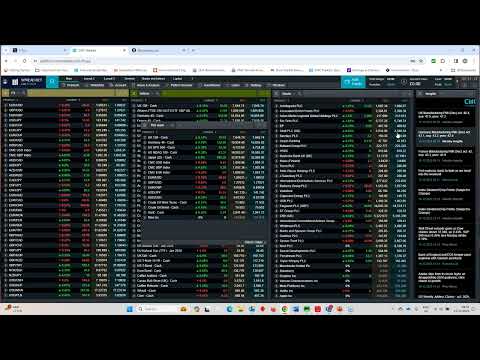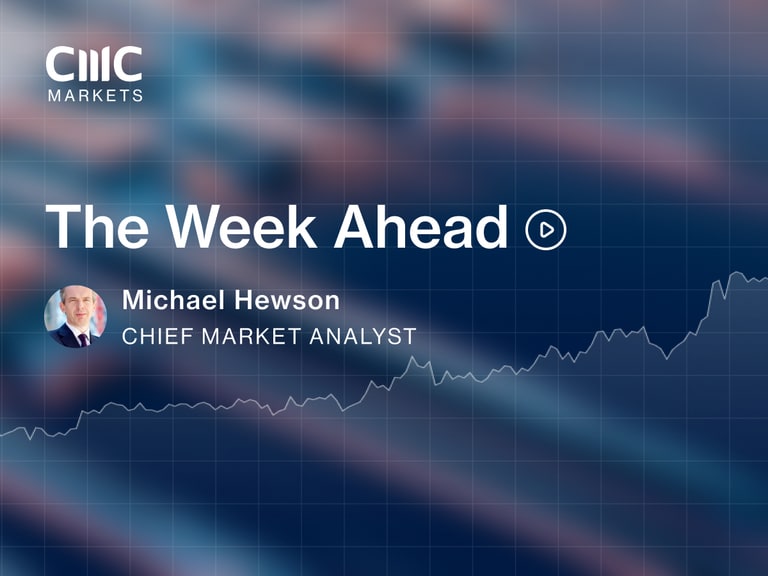Here’s our pick of the top three economic events in the week commencing Monday 18 December:
Bank of Japan rate decision
Tuesday 19 December: Earlier this month, Bank of Japan governor Kazuo Ueda signalled that the central bank might look at routes out of its negative interest rate policy. This prompted a sharp decline in the USD/JPY rate as traders pared back short positions on the yen. A few days later, the narrative shifted again amid reports that negative rates might persist. A change of policy in December was always unlikely, especially since the Japanese economy contracted by 0.7% in Q3. However, at some point the Bank of Japan may well raise interest rates into positive territory, if only to signal some form of policy normalisation. But with the world’s other major central banks seemingly at the end of their rate-hiking cycles and starting to contemplate rate cuts, the bar to a rate hike in Japan is likely to remain high, especially as neighbouring China endures deflation. It’s hard to envision a scenario in which the BoJ tightens its monetary policy while the US Federal Reserve and other leading central banks loosen theirs.
Eurozone CPI (November)
Tuesday 19 December: The flash estimate of eurozone consumer price growth for the year to November showed inflation dropping to 2.4%, down from 2.9% in October. The estimate supported the European Central Bank’s decision to leave interest rates unchanged on Thursday. The final CPI print for November is likely to rubber-stamp the flash estimate of 2.4%, potentially paving the way for inflation to fall back to 2% by the start of 2024. Moving forward, the main challenge for the ECB will be to convince markets that it won’t start cutting rates in Q1. Away from the headline numbers, core inflation in the euro area is also slowing, with the flash estimate showing a decline to 3.6% in November, down from 4.2% a month earlier. Lagarde has placed greater emphasis on core inflation when it comes to considerations of rate cuts.
UK CPI (November)
Wednesday 20 December: UK inflation fell more sharply than expected in October, dropping to 4.6%, below economists’ estimates of 4.8% and down from 6.7% in September. The decline was driven by a reduction in energy regulator Ofgem’s price cap, reflecting lower wholesale gas prices. Food price inflation also eased, contributing to a drop in the headline number, which peaked at 11.1% in October 2022. Declines in oil and gas prices since last year may have helped bring the headline rate of inflation even lower in November, with consensus estimates pointing to a figure of 4.3%. That said, core CPI – which strips out the price of energy, food, alcohol and tobacco – was running at 5.7% in October, higher than the Bank of England might like. On the plus side for consumers, pay growth was running at 7.3% in the three months to October, above the rate of inflation, helping to ameliorate some of the worst effects of the last two years.
Here's our pick of the week's other notable economic and company events:
US Q3 GDP (third estimate)
Thu 21 Dec: US third-quarter GDP growth was revised up to 5.2% at the second estimate, versus an initial estimate of 4.9%. Consumer spending growth, however, was lowered to 3.6% from an original estimate of 4%. The third and final estimates are unlikely to show much change from the second estimates. GDP growth was driven in part by increased investment in structures, warehouses, and healthcare. An increase in government spending also helped as the fiscal effects of the inflation reduction act continued to trickle down. However, the slowdown in consumer spending was perhaps a warning that higher interest rates are weighing on disposable incomes.
Nike Q2 results
Thu 21 Dec: Nike’s Q1 results helped send the shares higher as profit of $0.94 a share beat forecasts, even though revenue came in slightly below forecasts at $12.94bn. For Q2 the company was upbeat, saying it expected margins to expand by between 140-160 basis points and revenue to come in at $13.59bn. This optimism about future growth prospects and positive updates from peers like Adidas and JD Sports have helped push the Nike share price above its 200-day simple moving average (SMA) for the first time since May. Nike also said that it has made progress on cutting its bloated inventory, despite its relationship with Footlocker continuing to struggle. More recently, however, Foot Locker’s results suggest that sales are picking up. The retailer upgraded its full-year, per-share earnings guidance to between $1.30 and $1.40.
Carnival Q4 results
Thu 21 Dec: Cruises have been one of the travel sector’s biggest laggards during the post-Covid recovery. Carnival shares, listed in both the UK and the US, remain well below their pre-pandemic peaks. Until the most recent quarter, the company was still operating at a loss. After reporting yet another loss in Q2, expectations were high for a return to profit in Q3. Investors’ hopes were fulfilled as Q3 delivered record revenue of $6.85bn, returning Carnival to profitability. Indeed, profit beat forecasts to come in at $0.86 a share. However, its Q4 estimates were a little on the low side, sending Carnival shares down to a five-month low in October. Since then, the stock has rebounded, with the cruise ship operator saying that, for the full year, it expects to be back at maximum occupancy. The company added that full-year EBITDA was on track to be within guidance of between $4.1bn and $4.2bn. For Q4, EBITDA is expected to be between $800 and $900m.
US core PCE price index (November)
Fri 22 Dec: With the Federal Reserve having decided on Wednesday to keep interest rates at a range of 5.25% to 5.5%, traders and investors are fine-tuning their bets on when the Fed will start cutting rates. The latest reading of the closely watched core personal consumption expenditures (PCE) price index will help inform their thinking. In October, the Fed’s preferred inflation measure slowed to 3.5%, down from 3.7% in September and the lowest print since June 2021. Expectations for the November reading point to a further easing to 3.4%.
INDEX DIVIDEND SCHEDULE
Dividend payments from an index's constituent shares can affect your trading account. View this week's index dividend schedule.
SELECTED COMPANY RESULTS
| Monday 18 December | Results |
| Heico (US) | Q4 |
| Hollywood Bowl Group (UK) | Full-year |
| Tuesday 19 December | Results |
| De La Rue (UK) | Half-year |
| Enerpac Tool Group (US) | Q1 |
| FactSet Research Systems (US) | Q1 |
| Steelcase (US) | Q3 |
| Wednesday 20 December | Results |
| General Mills (US) | Q2 |
| Micron Technology (US) | Q1 |
| MillerKnoll (US) | Q2 |
| Toro (US) | Q4 |
| Winnebago Industries (US) | Q1 |
| Thursday 21 December | Results |
| AAR (US) | Q2 |
| Apogee Enterprises (US) | Q3 |
| CarMax (US) | Q3 |
| Carnival (US) | Q4 |
| Cintas (US) | Q2 |
| Limoneira (US) | Q4 |
| Mission Produce (US) | Q4 |
| Nike (US) | Q2 |
| Paychex (US) | Q2 |
| Friday 22 December | |
| No major scheduled announcements |
Note: While we check all dates carefully to ensure that they are correct at the time of writing, company announcements are subject to change.
Disclaimer: CMC Markets is an execution-only service provider. The material (whether or not it states any opinions) is for general information purposes only, and does not take into account your personal circumstances or objectives. Nothing in this material is (or should be considered to be) financial, investment or other advice on which reliance should be placed. No opinion given in the material constitutes a recommendation by CMC Markets or the author that any particular investment, security, transaction or investment strategy is suitable for any specific person. The material has not been prepared in accordance with legal requirements designed to promote the independence of investment research. Although we are not specifically prevented from dealing before providing this material, we do not seek to take advantage of the material prior to its dissemination.






